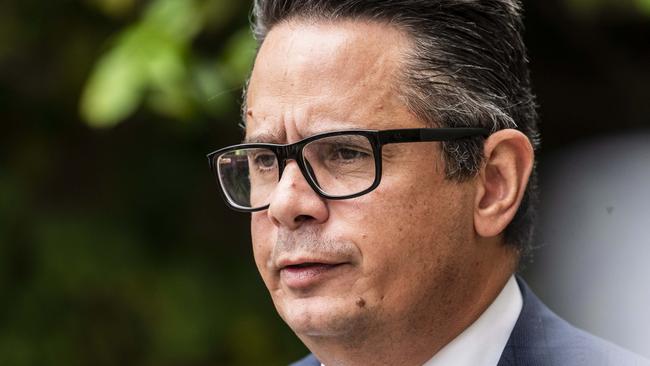Compensation claim could change native title deals
The Yindjibarndi people of the Pilbara are preparing a landmark claim against iron ore miner Fortescue Metals Group.

The Yindjibarndi people of the Pilbara are preparing a landmark claim against iron ore miner Fortescue Metals Group as a proliferation of native title compensation cases prompts calls for a national approach to deal-making.
The Yindjibarndi’s case will be Australia’s first exclusive possession compensation claim, according to Yindjibarndi lawyer Tina Jowett. The claim centres on what traditional owners will say is a significant loss of native title rights caused by the Solomon Hub mine.
The case could bring attention to a patchwork of laws across Australia addressing native title compensation; Western Australia passed liability from the government for native title compensation to miners in 1978. However, in South Australia, it was the state government that paid compensation to the Yankunytjatjara people for a realignment of the Stuart Highway in 2013.
Rio Tinto board member and former WA Aboriginal affairs minister Ben Wyatt sees outstanding compensation for impacts on native title as a huge looming issue for governments and corporations.
“Successive commonwealth and state governments have kicked this can down the road, but that luxury is rapidly closing,” he writes in Inquirer.
Governments and native title specialists expected many claims would flow from the 2019 High Court decision about Timber Creek, which found the three components for just terms native title compensation were cultural loss, simple interest and economic loss. Cultural loss was the most significant.
Some claims are large and complex: in the central deserts, the Tjiwarl compensation case involves 17 miners and many pastoralists.
“In Western Australia the claims for compensation are beginning to be lodged in the courts with potential for huge payouts in compensation to native title holders imposed on the state government by the courts,” Mr Wyatt writes. “Once in litigation the courts can only award financial settlements. The outstanding national compensation liability is significant.
“In the absence of a structured national framework for negotiated agreements concerning compensation, it is inevitable that native title compensation claims will continue to be lodged in the courts throughout Australia.”
Fortescue chief executive Elizabeth Gaines said the company had seven agreements with native title partners across the Pilbara providing a range of benefits including preferential access to training, employment and business opportunities as well as direct financial benefits. These agreements provided significant and sustainable beneficial outcomes to the relevant communities, Ms Gaines said.
“Fortescue remains open to negotiating a Land Access Agreement to the benefit of all Yindjibarndi people on similar terms to the agreements Fortescue has in place with other native title groups in the region,” Ms Gaines said.
“Any native title compensation claim will have no impact on our current or future operations or mining tenure at the Solomon Hub, and we do not anticipate any material financial impact to the business in the event of any eventual determination.”
Former chief justice Robert French said governments must explore, with native title holders, some common practical approaches to the negotiation of compensation claims.
“There will be no one-size-fits-all solution. There will inevitably be test cases. However, if consistent general approaches to negotiation can be agreed, they should help to expedite agreements and reduce transaction costs,” Mr French said.
He believed governments already knew what needed to be done because they had adopted guiding principles for native title agreements last October.
The principles include that governments will work to ensure, where possible, there is consistency within and across jurisdictions and with national best practice in approaches to assessing, valuing and resolving native title compensation.
“Working out compensation claims by negotiation or litigation, like working out native title claims, will take time and test the patience of all parties,” Mr French said.
“Common approaches which reduce the areas of dispute to be negotiated or to be determined by courts can make the process more efficient and help it to work as a step along the pathway of reconciliation.”




To join the conversation, please log in. Don't have an account? Register
Join the conversation, you are commenting as Logout